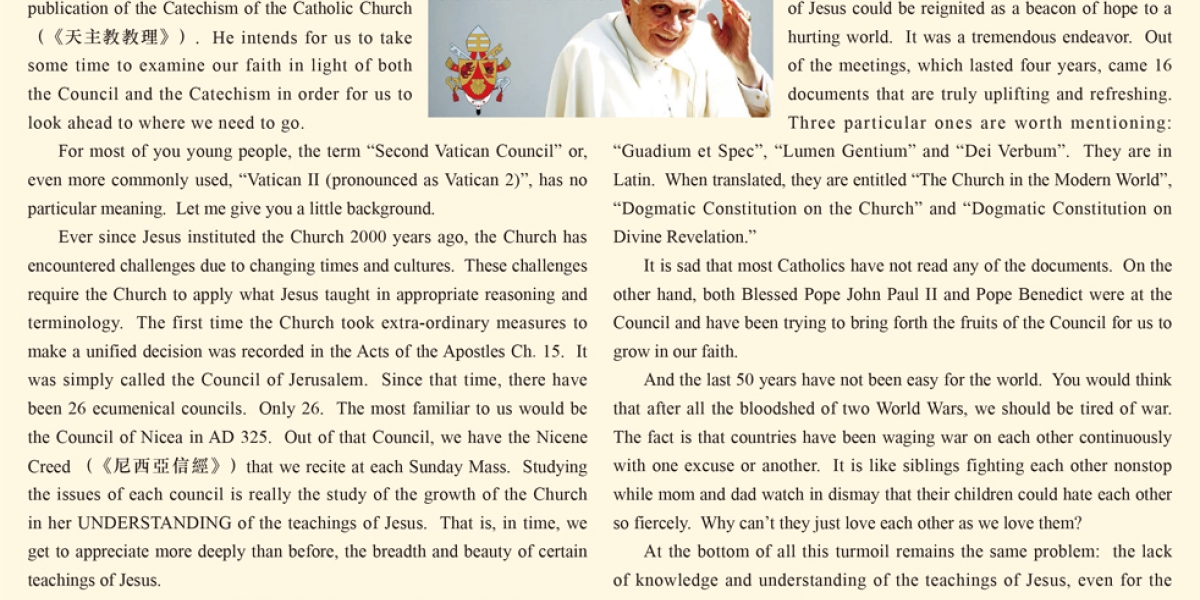昔日文章


Famous Quotations
2013.03.24
Brevity is the soul of wit. — William Shakespeare | 言貴簡潔。 – 威廉.莎士比亞
The above quotation has become a standard proverb in the English language. It means that a wise person should use few but exact words. The quotation comes from the play “Hamlet”(《哈姆雷特》)written by William Shakespeare(1564 – 1616), one of the greatest playwrights and poets in the world.
“Hamlet” is one of Shakespeare’s best-known tragedies. In the play, Prince Hamlet discovers that his father has been killed by his uncle. So he seeks to avenge this deed, which leads him into a world of madness and murder.
What other plays did Shakespeare write? He wrote at least thirty plays. Famous comedies are “The Merchant of Venice”(《威尼斯商人》), “Twelfth Night” (《第十二夜》)and “Taming of the Shrew”(《馴悍記》). Well-known tragedies are “Romeo and Juliet”(《羅密歐與茱麗葉》), “King Lear”(《李爾王》)and “Macbeth”(《馬克白》).
Although Shakespeare lived more than 400 years ago, his plays are still performed and adapted in theatres and movies in different languages all over the world. Students study Shakespeare’s works in school and at university.
Shakespeare also wrote a lot of poems. As his works have greatly influenced the entire English language, you may notice that a lot of English idioms or proverbs came from his works. Examples include “I have not slept one wink” (我都沒闔過眼), “love is blind” (愛情是盲目的) and “all corners of the world” (世界各地).
As Shakespeare used the language of his time, modern people often find it difficult to understand his language and style. Perhaps you can try to read some simplified versions which have been rewritten in present-day English.
Proverb: 諺語
Playwrights: 劇作家
Poets: 詩人
Tragedies: 悲劇
Comedies: 喜劇
Adapted: 改編
Style: 風格
Rewritten: 改寫


Magic Mirror
2012.09.28
Magic Mirror
Riding on the MTR is always adventurous as I can witness a lot of interesting scenarios. I have seen girls using their cell phones as mirrors for doing make up. It is amazing that they can do such delicate job even the train is accelerating, without any difficulty. This makes me think what can you see through the mirror except the reflection of your face? If there were a magic mirror, perhaps it could show the reverberation of one's thought and the different sides of one's personality.
Actually there is, and that is friendship. With friends we feel accompanied, supported and it is a channel to speak out your thoughts and emotions. Friends listen and trust each other and they can always let you know what is good or if something goes wrong, just like a mirror. However friends can become enemies in an extreme. Very often we can see all sides of other people but not ourselves, because our heart is blinded by selfishness and greed. Nowadays, everything counts on efficiency and competitiveness in our daily life. Competition and rivalry are like the best friends; they always make a good team and destroy many good quality friendships. A magic mirror only works with the correct spell, and trust is the key.
Looking into the mirror, you will see many paths without end and this will lead us to make them a road, a road with all answers we wish to know.


Neither East Nor West
2012.09.28
Where are we going?
Pope Benedict announced the Year of Faith to celebrate the 50th anniversary of the Second Vatican Council (梵蒂岡第二屆大公會議) and the 20th publication of the Catechism of the Catholic Church(《天主教教理》). He intends for us to take some time to examine our faith in light of both the Council and the Catechism in order for us to look ahead to where we need to go.
For most of you young people, the term “Second Vatican Council” or, even more commonly used, “Vatican II (pronounced as Vatican 2)”, has no particular meaning. Let me give you a little background.
Ever since Jesus instituted the Church 2000 years ago, the Church has encountered challenges due to changing times and cultures. These challenges require the Church to apply what Jesus taught in appropriate reasoning and terminology. The first time the Church took extra-ordinary measures to make a unified decision was recorded in the Acts of the Apostles Ch. 15. It was simply called the Council of Jerusalem. Since that time, there have been 26 ecumenical councils. Only 26. The most familiar to us would be the Council of Nicea in AD 325. Out of that Council, we have the Nicene Creed (《尼西亞信經》)that we recite at each Sunday Mass. Studying the issues of each council is really the study of the growth of the Church in her UNDERSTANDING of the teachings of Jesus. That is, in time, we get to appreciate more deeply than before, the breadth and beauty of certain teachings of Jesus.
Back to Vatican II. After World War I in 1918 and, unimaginably, followed by World War II 20 years later, the world was hurting, really hurting. Almost all countries were suffering from devastation. People questioned whether there was any future for humanity if we could cause such pain to one another. Out of this sadness, Pope John XXIII called for the bishops of the world to gather in Rome to consider how the Church and the message of Jesus could be reignited as a beacon of hope to a hurting world. It was a tremendous endeavor. Out of the meetings, which lasted four years, came 16 documents that are truly uplifting and refreshing. Three particular ones are worth mentioning: “Guadium et Spec”, “Lumen Gentium” and “Dei Verbum”. They are in Latin. When translated, they are entitled “The Church in the Modern World”, “Dogmatic Constitution on the Church” and “Dogmatic Constitution on Divine Revelation.”
It is sad that most Catholics have not read any of the documents. On the other hand, both Blessed Pope John Paul II and Pope Benedict were at the Council and have been trying to bring forth the fruits of the Council for us to grow in our faith.
And the last 50 years have not been easy for the world. You would think that after all the bloodshed of two World Wars, we should be tired of war. The fact is that countries have been waging war on each other continuously with one excuse or another. It is like siblings fighting each other nonstop while mom and dad watch in dismay that their children could hate each other so fiercely. Why can’t they just love each other as we love them?
At the bottom of all this turmoil remains the same problem: the lack of knowledge and understanding of the teachings of Jesus, even for the majority of Catholics and other Christians. It is with this concern that Pope Benedict wants us to take some time to really study our faith. It is not enough that we say we believe. Our faith must have graspable reasons and livable practicality. In the next weeks, we will explore some of our history.



